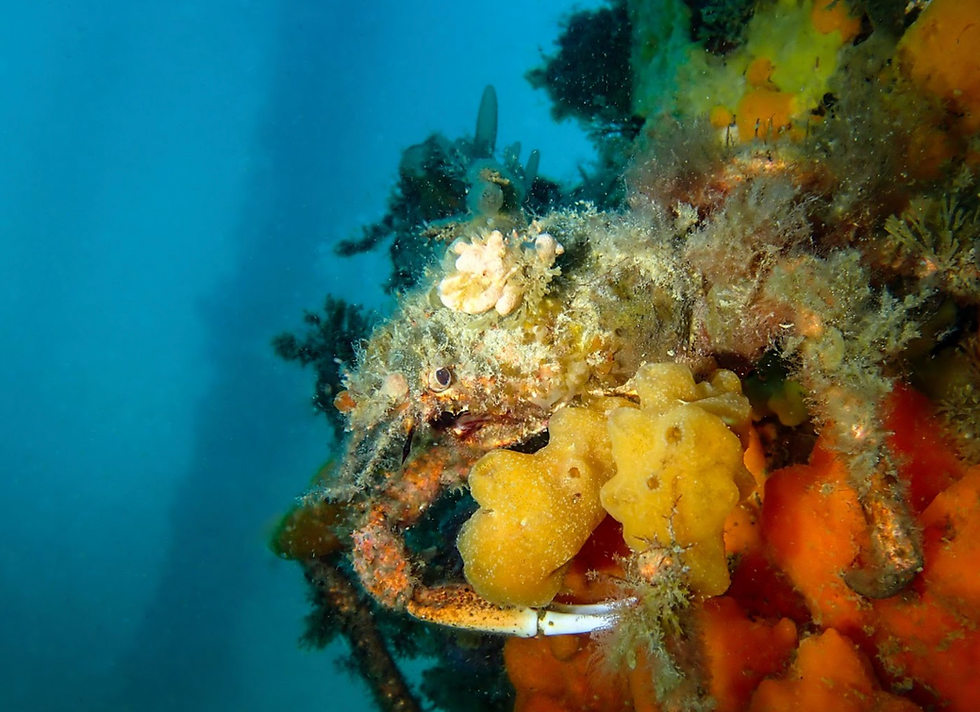To Touch Or Not To Touch (Marine Life)
- danielle1428
- Jun 21, 2023
- 3 min read

Not to touch!!
You’re probably familiar with those photos posted on FB, of people holding Starfish on some exotic beach, or holding a Sting Ray or Shark like it’s their pet… I personally find that incredibly annoying! I’m sure a lot of you would agree with me. This is not necessarily the fault of the people in the photo, they are just not educated enough. It’s mainly the fault of the people or the organizations which allow it.
In my travels around the world I have seen quite a few dive masters and dive instructors feeding, touching or poking marine life to steer them closer to the divers, hoping for better tips. How would you feel if someone penetrated your house with a giant stick through the window and started poking you?
I’ve seen quite a lot of snorkeling instructors lifting poor animals, which were minding their own business, only to get a few screams of excitement from a couple of girls in bikinis. There are better ways to hit on girls!! This is the source of the problem…
So what would happen if you pet turtles, Sting Rays and other marine life? Getting bitten, burnt or stung are some of the dangers. Frankly, I don’t blame them. If a stranger would pick me up and start stroking me, I would bite him without hesitation.
You will also expose these beautiful animals to diseases and infections. You see, many marine life have different types of slime on their skin (AKA Bio-Films), protecting them from various infections. Once a human lays hand on them, that protective film is compromised.
Each animal also has defense mechanisms, to protect them in case of attacks. Those defense mechanisms are often dangerous to humans, if not deadly. Curiosity killed the cat as they say.

A good example for that would be Surgeonfish, which as their name suggests, have spines on their top back side which are as sharp as a surgical tool, and can cause serious injuries to snorkelers or divers. I personally would not want to touch that. Many species have venom in various parts of their bodies, such as the Stone Fish and Scorpion Fish and Moray Eels can bite if harassed. Bottom line, if while diving you choose to stick your hand inside a dark hole, don’t be surprised if it comes out missing a couple of fingers!
Puffer Fish are slow swimmers and serve as easy “prey” for humans to play around with. I’m sure you heard of divers poking a puffer fish to see how it inflates and have a laugh. Well, for the fish itself it’s definitely NOT funny. Every time a puffer fish inflates itself, all of its internal organs are pushed aside and flatten, causing it a lot of stress which will take it hours to calm down from. Also, it exposes it to attacks for several hours since it cannot use this mechanism often.

Another common human “toy” is the Starfish. This beautiful creature with strong, vibrant colors can’t really run away from you, so it’s very tempting to play around with it. Most people don’t know, but Starfish are very gentle and touching them might ruin their structure. Also, taking them out of the water can be devastating for them as some species cannot survive more than a few hours out of the water and others can survive only 10 seconds! I doubt the girls in bikinis taking a Selfie with them are Marine Biologists who can determine the exact species and how long they can survive above water.
At some point all Starfish would die so taking it home is never a good idea. It’s not a souvenir! It’s a living creature.
Corals are also a living creature, breathing, eating and reproducing. Even a light touch can harm their outer skin eventually killing that section of the coral. Humans have bacteria and oils on their hands which hurt the Coral Colony. Black-band and brown-band diseases spread easily among coral colonies and humans help spread them. Corals breath, eat and reproduce through tiny holes in their polyps and these are easily clogged by sand and human touch. Once they are clogged, the corals die at a much higher rate than their growth rate, which is 0.3-2cm a year for massive Corals and up to 10cm per year for Branching Corals. Did you know that it take a Coral Reef 10,000 years to develop? Just imagine how much time it would take to grow back that small branch you bought at a souvenir shop…

So as divers and ocean lovers, we can conserve this magical world for future generations. All we need to do is raise awareness! If you agree with me, please share this post and together we might be able to save some of this beauty for our kids and grandchildren to enjoy.




Comments